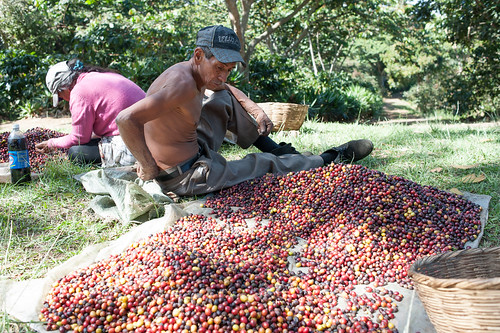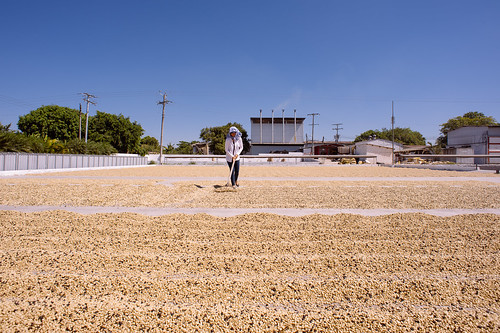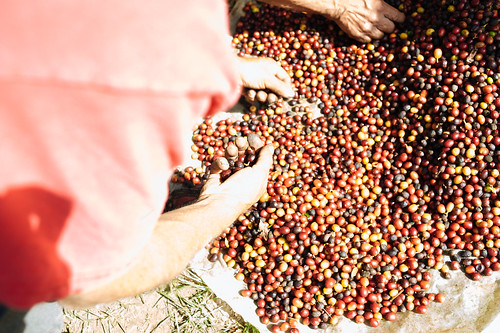
This post had been long overdue but will be the first of a series of posts highlighting our sourcing trips. To share what we experience first hand on these trips that we are always so excited about.
El Salvador, a country which we first visited in 2011, have always held a special place in our hearts. It is the smallest country in Central America, but its people have big hearts. We went back again this February for an origin trip to visit Finca El Zarzal, the farm that we bought from in 2012, as well as to source for new coffees. Arriving at San Salvador, it was like visiting an old friend. We met our friends, Federico Bolaños, Lily Pacas and Alejandro Mendez from Viva Espresso. Federico and Lily started Viva Espresso a few years ago and it is now one of the most prominent coffee roaster/cafe in Central America for producing barista champions. They have brought much attention to coffee producing countries in 2011 as it was the 1st time in World Barista Championship history that a world champion came from a coffee producing country. It meant a lot to coffee producers in El Salvador as such international acclaim gives credit to the producers who have put in much resources towards producing quality coffees.
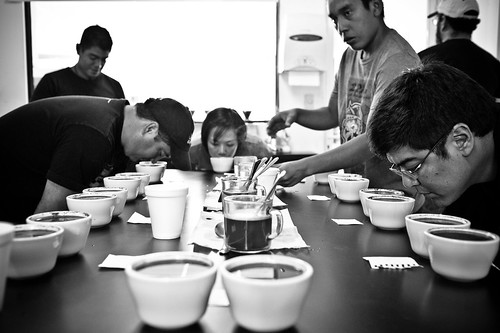
Federico had arranged for us to cup coffees at their roastery cum training lab. Joining us as the cupping table were the guys from Dark Matter Coffee from Chicago. It is always fun to cup together with other coffee people from different countries. Through such sharing sessions, we get to hear what others have to say about the same coffees and learn from each other. On the cupping table, there are coffees from different farms from different regions of El Salvador. There were also some interesting varietals which we have not tried before, such as pink Pacamara, which turned out to be a really interesting cup. Most of the coffees exhibit the general characteristics of El Salvadoran coffees – fruit-tones, balanced, clean cup and good sweetness. It was a real treat for us. After the morning cupping session, we headed off to visit Beneficio Tuxpal, which is owned by Lily’s family and managed by his brother, Federico Pacas. The beneficio (dry and wet mill) is very well-managed and we are impressed by their dedication towards quality processing. Beneficio Tuxpal processes coffees for their own export, as well as for other exporters. Federico Pacas also mentioned that further investments are made into experimental trials on drying methods, such as shade drying on raised beds. They are also trying to construct a shelter for the fermentation tanks.
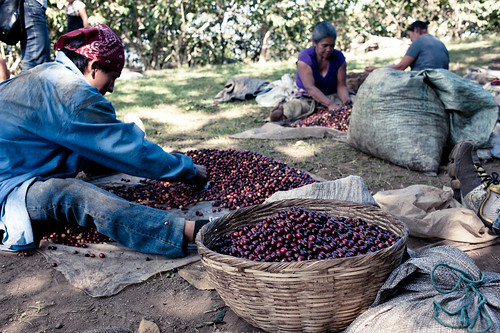
Next, we went to visit Finca Santa Petrona, located in the Apaneca-Llamatepec region of Western El Salvador, at an altitude of around 1450m above sea level. Down at the farm, the cherry pickers were doing the last picking for the harvest season (usually 3 pickings during a harvest period from December to March). Many of the farms in El Salvador are badly affected by the coffee rust disease (“La Roya”) sweeping across Central America. We saw a handful of coffee trees which had signs of the coffee rust, but most of the farm remained healthy. Finca Santa Petrona produces mainly the Red Bourbon varietal. There is also some Pacas and a small amount of Pacamara. To produce high quality coffee, the farm applies fertilization, pruning, shade regulation, pest control, soil conservation and weed control. Federico and his family also invest time in educating the cherry pickers the importance of specialty coffee, differentiation of the colours of the cherries at different stages of ripeness and its impact on sugar content. While walking through the coffee farm, Federico also explained to us how to identify the varietals by observing the shape of the leaves, the size and shape of the coffee tree and also the distance between the nodes. We have read some from books and online resources, but nothing beats looking at the real thing and learning it from the experts.
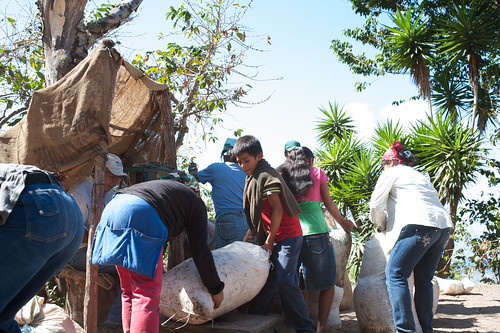
The next day, we arranged to meet Ben Argueta, owner of Finca El Zarzal. We started buying coffees from Finca El Zarzal thanks to Federico Bolaños’s introduction. Ben was living in New York for many years before returning to take over the family business some years back, which explained for his fluent English. Finca El Zarzal is a family owned and operated business and Ben has been managing the farm and its mills since 1997. We were extremely excited to visit El Zarzal as we loved the coffees we got from this farm back in 2012. The journey was really fun but butt-breaking as both of us had to squeeze into the other front seat in the pickup that Ben drove. Luckily we were both fairly skinny and one of us managed to squeeze into a space behind the seat of the other! After climbing up the farm where we almost reached the highest lot, Loma Alta (about 1400-1450m), we had to head back down almost immediately as the farm manager, Hernan, had to return to the collection point to record the cherry pickers’ load for the day. Most of the cherry pickers have been working at Zarzal during the harvest season for many years. Watching them carry heavy loads of cherries down the steep slopes, we are grateful for their hardwork. After the farm visit, we headed to the beneficio to have a look at the processing facility. Ben has started experimenting with drying the parchment on African raised beds for specialty micro-lots. We were very honoured to break into Ben’s new cupping lab. The first thing that took our breath away was the amazing view of the farm and San Vicente Volcano. Against such a beautiful setting, we felt as if we were in a mountain resort, and not a cupping lab/beneficio! There were lots of samples to cup from different lots and by the time we left the beneficio, it was well past sunset. We had to make our way back to San Salvador before leaving for Nicaragua early next morning on bus.
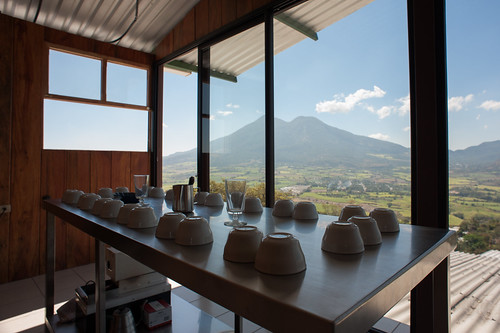
Visiting Finca El Zarzal and meeting Ben in person meant a lot to us as it has been our belief from day one that our business should be based on relationships with our beans supplier and our customers. Though we are small, we still want to hold true to our belief. During our short stay in El Salvador, we were also fortunate to catch up with Annette Moldvaer from Square Mile Coffee Roasters (London) and Chris Owens from Handsome Coffee Roasters (Los Angeles) over dinner. Coffee brings people together and it is through such encounters that give us opportunities to make new friends in the coffee world.
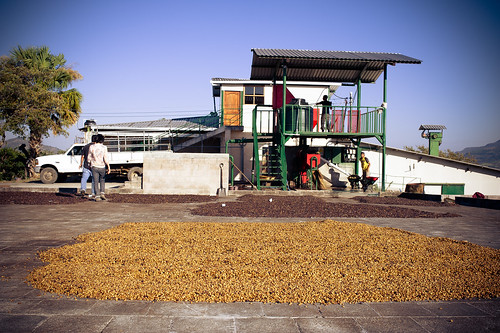
For more photos, head over to our unofficial flickr page to browse.




